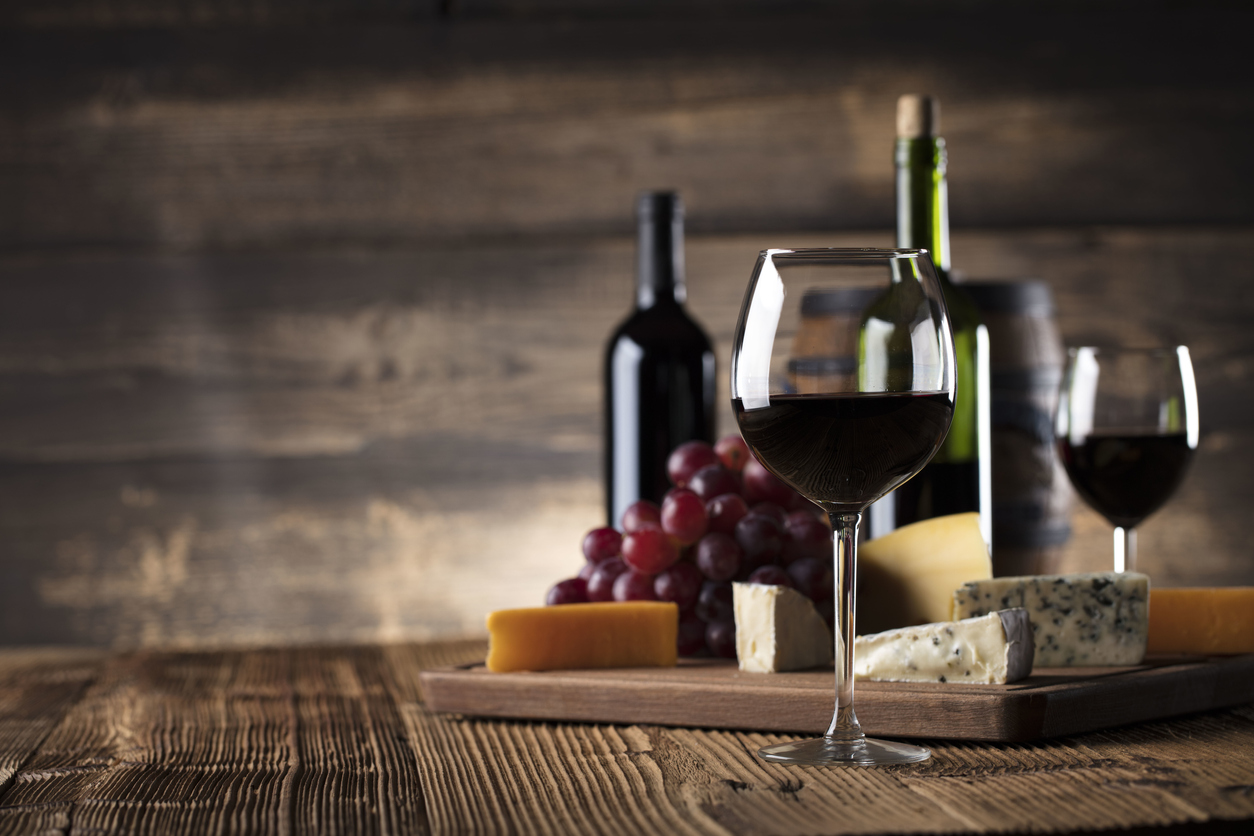Marketing and Wine: A Perfect Pairing?

If you're marketing to age, you've likely discovered that boomers have convinced themselves that they're getting better with age. When it comes to symbols that are associated with positive aging, nothing else conjures up glorious improvement over time like fine wine. This rich metaphor is so universally accepted that no treatise on marketing to age would be complete without a deep understanding of the parallels between wine that gets better with age and people who also see themselves improving with age.
If you take the time to understand what's in your glass, you'll discover that wine has deep roots. Those roots meander back to its origins in the agriculture and civilization of ancient China in 7,000 BC, its sacred place in religious ritual, and its ubiquitous and seemingly essential presence in today's social and culinary pursuits. Wine has been described as many things, but apropos of this discussion on the art of marketing, a great glass of wine is like poetry, a rhythmic collection of beautiful elements that is left open to personal interpretation.
Understanding what to make of wine begins with understanding how it's made. While the process of winemaking can be complex, at its simplest it's about two things: agriculture and art. The agricultural aspect is about growing the great grapes that are the foundation for fine wine. This is where nature dominates and humans compensate. The art aspect pertains to what we can impart to wine through the craft of winemaking. That begins with the honed instincts to know when it's best to harvest the fruit, combined with the deft skill of transforming the fruit into juice that can age to perfection.
So how does wine get better with age and what can we learn from that to help us get better at marketing to age?
Great wine begins with great grapes:
When it comes to the practice of growing the grapes that go into the finest wines in the world, the concept of terroir (French for "earth, soil") is central. Terroir in wine refers to the specificity of a place where grapes are grown; i.e., the set of geographic, geological, and climatic factors that interact with grapes to produce taste characteristics are often unique to that location. While sturdy grape varietals such as Cabernet Sauvignon thrive in a broad range of growing environments, other more delicate varietals like Pinot Noir — the grape behind noble red wines from Burgundy — require very specific conditions that are compatible with its needs and can ultimately coax out the unique brilliance of this fruit. The greatest wines in the world start with spectacular fruit grown in vineyards with exceptional terroir.
By comparison, the boomers also believe that they've improved with age because their life has borne the beautiful fruit of hard work and success. They believe in the basics and fundamentals of life at a time when rampant innovation is challenging their notion of order, permanence, and stability. They believe that the best measure of one's character is one's actions and that, apropos of wine, what you get out of life is a function of what you put into it.
Advertisers looking to market to them need to lead with substance and quality, wrapped up in a message of authenticity. Simply put, they won't drink your "wine" because you've found an enticing way to serve it up; you'll likely need to demonstrate that it was made with quality ingredients, as part of a purpose dedicated to making things the right way. Nothing sells a boomer like enduring quality — the epitome of the most classical wine producers in the world.
When it comes to aging, what goes on inside a bottle of wine in the cellar of a French chateau is chemistry. That's right, chemistry. The elements of the wine and its environment are interacting with each other as part of an intended transformation of the wine. While we have romanticized the aging of wine, at the end of the day it's a technical process. Winemaking results in a formula of compounds that work synergistically to yield something different than what was originally placed in the barrel or bottle.
In this sense, the aging of wine does not categorically improve it, it simply changes it. The "improvement" that we claim to recognize in aged wine is the result of the positive perceptual associations that we bring to the tasting experience, which, in turn, are influenced by the ethos of wine — the mantra of which is "old wine tastes better." Aged wine technically doesn't improve, it technically changes. We attribute positive qualities to this technical change because we are influenced by the mental paradigm that we bring to the tasting of the wine.
While the aging consumer believes they're getting better with age, the technical truth is that they are not. In the same way that we perceive that the wine has improved with age, boomers are bringing their positive ethos of aging ("aging is good") to the interpretation of their technical reality. They have changed with age, and because the reality of that change is inconsistent with their desired scenario of life, they have created a new mystique that glorifies aging.
So, when you compare marketing to age with an aged wine, you learn that it's not what's in the bottle that counts; it's also what you bring to the interpretation of what's inside. Just as wine is poetry — beautiful elements that are open to personal interpretation — so, too, is aging. The physical aspects of aging aren't beautiful, per se, but it's the nature of the human spirit to embellish reality to create a better portrait of life's advanced years.
In the end, marketing to age — like the making of a fine wine — is an art. When you get it right, you will have created beautiful poetry that can't be resisted.
Click the social buttons to share this story with your friends and colleagues.
The opinions and points of view expressed in this content are exclusively the views of the author and/or subject(s) and do not necessarily represent the views of MediaVillage.com/MyersBizNet, Inc. management or associated writers.


